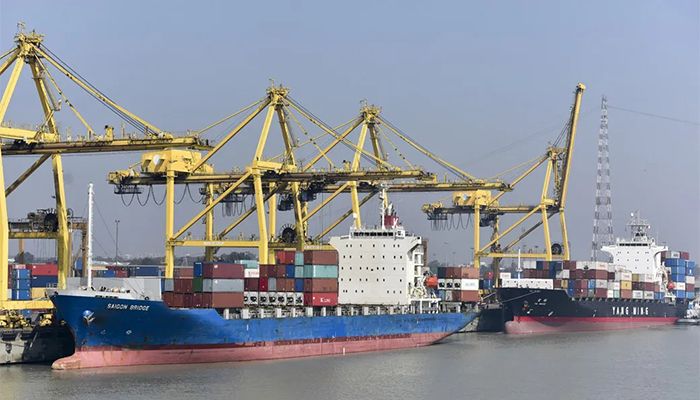
Desk Report
Publish: 07 Oct 2023, 12:24 pm

The decline in LC openings can be attributed to the various conditions imposed on imports by the government and the Bangladesh Bank (BB) || Photo: Collected
The initiation of letters of credit (LCs) for importing goods experienced a significant decrease of 22.64 percent in September of the present fiscal year when compared to the same month in the previous fiscal year.
The decline in LC openings can be attributed to the various conditions imposed on imports by the government and the Bangladesh Bank (BB), which were implemented to counter the reduction in foreign exchange reserves.
Based on the most recent data from the Bangladesh Bank, LCs totaling $4.68 billion were initiated in September, down from $5.59 billion in August of FY24. In September of the previous year, LCs amounting to $6.05 billion were opened.
Simultaneously, the settlements of LCs saw a significant decrease, reaching a 35-month low at $4.30 billion in September.
A senior BB official, who chose to remain anonymous, disclosed that many banks settled deferred LCs that had been opened six months ago, causing a reduced pressure on the settlement of sight LCs.
According to experts, the government's efforts to tighten LC openings and settlements on imports since the start of FY23 are aimed at stabilizing the US dollar market.
In contrast, Bangladesh's private sector credit growth plummeted to a 22-month low of 9.75 percent in August, as per central bank data.
This data suggests that importers initiated fewer LCs compared to the previous period. Insiders believe that the ongoing decline in private sector credit growth is due to global economic challenges and the upcoming election in the country.
Additionally, the central bank has instructed banks to notify it 24 hours in advance of opening LCs worth $3 million or more as part of cost-saving measures.
These various measures taken by the banking regulator have contributed to stabilizing LC openings by the end of the current fiscal year, according to some opinions.
LC openings decreased last year due to BB's austerity measures, which were considered a timely initiative by Ahsan H Mansur, the executive director of the Policy Research Institute.
Mansur mentioned that the central bank restricted imports of luxury and non-essential products during a period of forex market volatility. He also emphasized that without these measures by the central bank and the government to control imports, the forex crisis would have persisted.
However, Mansur noted that the pressure on the forex market continues.
In June of FY23, LCs totaling $4.23 billion were initiated, and in July, there was a 4.49 percent increase in LC openings despite the overall downward trend.
Despite the decline in LC openings for imports, the central bank continues to inject USD into the market.
In FY23, the BB sold approximately $14 billion to the market from its forex reserves, whereas in FY2021-22, it sold over $7 billion to banks.
Banks, especially state-run ones, are currently receiving USD support from the BB for settling import payments for various government agencies, including the Bangladesh Petroleum Corporation, Bangladesh Agricultural Development Corporation, and Bangladesh Chemical Industries Corporation.
The country's forex reserves have been steadily decreasing since August 2021 due to the central bank's USD selling activities, with foreign exchange reserves standing at $21.05 billion as of October 5, based on the IMF BPM6 method.
Subscribe Shampratik Deshkal Youtube Channel
Topic : LC Bangladesh Bank LC openings US dollar market
© 2024 Shampratik Deshkal All Rights Reserved. Design & Developed By Root Soft Bangladesh